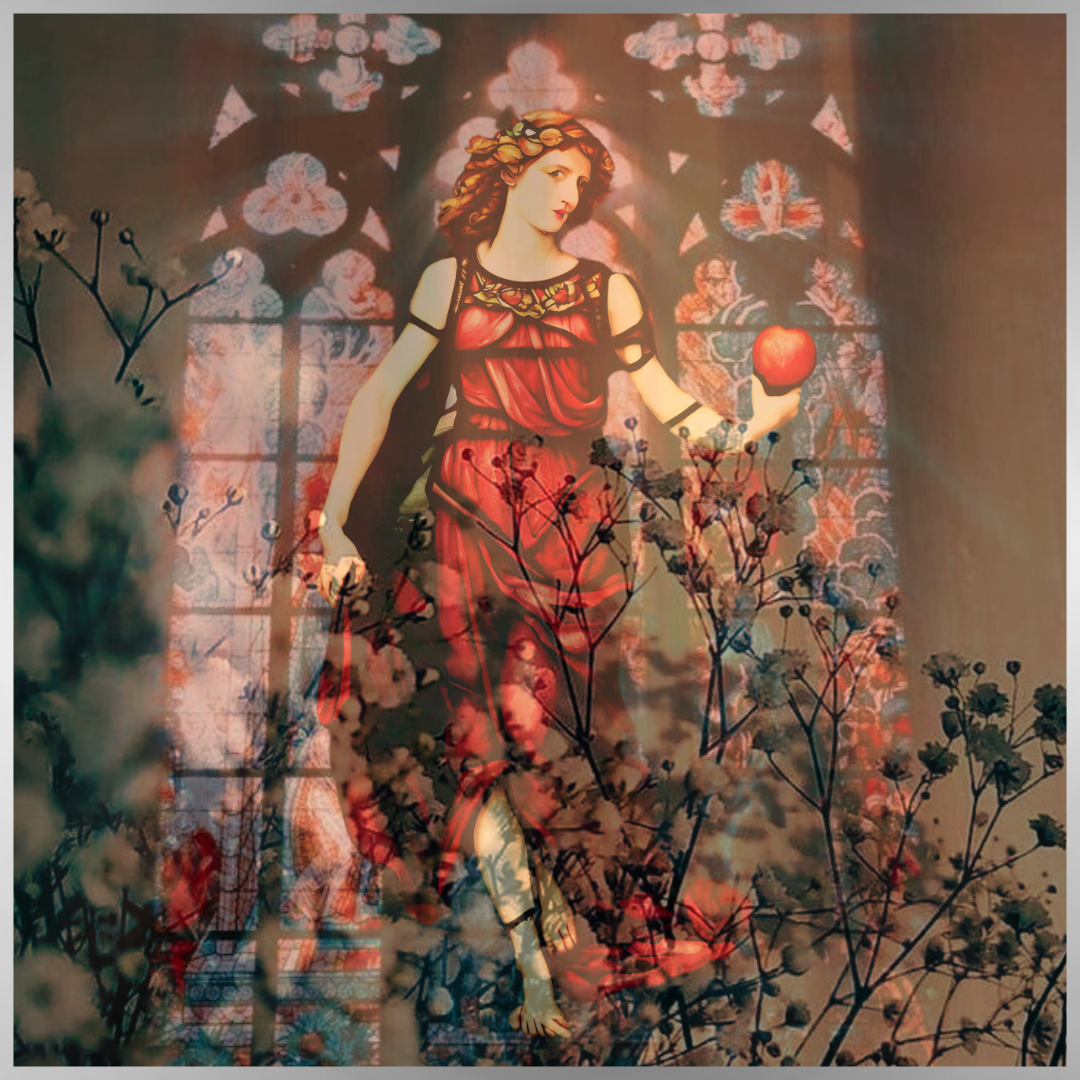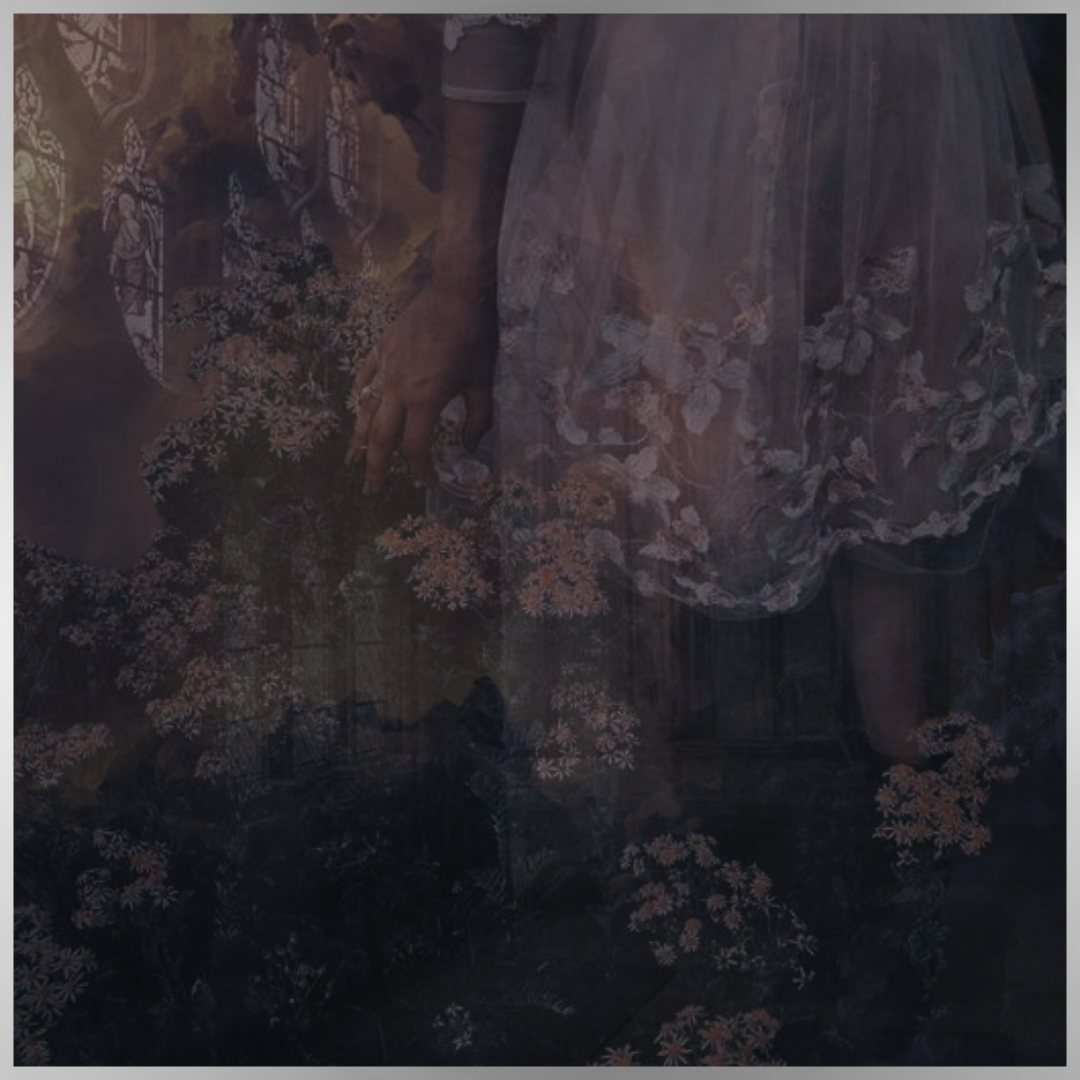Beginning/Prologue (PART 2)

I became part of my small church's choir after I was confirmed. The choir consisted of one bass, two tenors, one alto, and three sopranos. I was the designated alto. Technically, I was also a soprano, but I had a wide vocal range, and the choir needed altos, so an alto I was.
That September it was as hot as July. Our church hadn't yet bought its two central air units for the sanctuary and parish hall (the units were eventually nicknamed Paul and Silas because they were nested in a protective barred metal cage that looked vaguely like a jail) so the only relief from the heat came from open windows, and from several electric floor fans that did little real cooling. I was roasting in my vestments. More than anything, I wanted to sit down in the pew to rest, but that was out of the question because the choir stalls were up front near the altar, and on display to the rest of the congregation.
Noblesse oblige.
It was some time shortly after the consecration of the Host that I succumbed to the heat and, I think, the incense and the candle smoke, and lost consciousness.
When I came to, I was lying on the cool, tiled floor of the refectory, with wet cloths on my forehead and wrists. Church was still going on, so the only people there were my mother and father. I had no idea who carried me downstairs to the parish hall, or how. It couldn't have been my mother. She wasn't strong enough.
"I should have been allowed to sit down," I grumbled.
To which my father said, "Can the priest, who is wearing even hotter clothing than you are, and far more of it, sit down? He has an obligation to celebrate the Mass, no matter what. And you, as long as you are in the choir, seen by all members of the congregation, have an obligation to behave as a chorister.
"That means showing up for rehearsals, even when you have more interesting things to do, such as reading that new science fiction book you just bought; it also means kneeling or standing to sing when you would rather be sitting down comfortably, and remaining in your place even when you want to be elsewhere, such as a cool, air-conditioned room, because you are setting an example for all who behold you.
"You are in a leadership position, whether you are aware of it or not, and a leader must follow stricter rules than everybody else, to earn the respect of those who follow. Nobility imposes obligation."
In other words, it was my fault that I fainted.
He did try to live by his creed of leading by example. He tried to give back to the community what he might take from it as a member of the taking class, albeit in what I would consider very minor ways - giving food and other charitable gifts to the impoverished, volunteering in a soup kitchen on Thanksgiving morning and afternoon, taking part in community litter clean-up and tree plantings and Neighborhood Watch patrols.
And of course, he tried to lead by example in the way he felt was the most important of all, namely, doing his best to live in an upright and moral way, at least as he saw it. He put more energy into doing that than he did into any kind of community service.
We have since had our differences, which I will go into, and there were many, but I would be lying to myself if I did not admit that of all the teachers who were my friends and role models when I was a child, he was my favorite, and I probably do take after him in many ways.

That was my childhood, then. Wealthy? Yes. Sheltered? Yes. Lonely? Absolutely yes. But it was hardly something I should call unhappy.
Even when I was bullied by classmates who were better at sports or, I guess, at simply talking to each other than I was (and for all I know, they probably bullied each other as well, over other minor things that made good excuses for bullying) I would not call my childhood a bad one. I think for the most part I was probably happy.
I had what I wanted. I had a never-ending supply of books to read, teachers whom I generally impressed and beguiled into making me their pet, and a life free of want. I might have been unhappier had I been more desperate to make friends my own age and to fit in with my peers, but I was not very interested in that. Or so I told myself.
And then came adolescence.
My parents pulled me out of the school I'd attended since I was four years old and put me in a private Catholic school for girls.
They were a little concerned that the school's required religious curriculum, post-Vatican II that it was, would give me liberal ideas and corrupt me away from what was supposed to be a very straight and narrow path, but my father considered it inappropriate, due to conflict of interest, to be one of my schoolteachers, and he would have taught my history classes had I gone on to the upper school in my academic consortium.
Also, the upper school, like the lower schools and the middle school, was coed. My parents had moral sensibilities straight out of the Victorian era and considered it unseemly for a girl of my age to be in classes with boys. I would have been more than happy to go to a boarding school in New England like the one my father attended when he was my age, but I was the only child, and my mother said she would miss me too much if I was sent up to boarding school somewhere, so a local private school for girls it was. The only single-sex high schools in our city were all Catholic.
It wasn't a bad change. Without boys present, gym class was suddenly a lot less embarrassing. Even better, for some reason, I have no idea why, the bullying stopped. I still wasn't even remotely popular, but being ignored was a step above being bullied.
The new school, furthermore, had something that my former school did not: philosophy classes. All the philosophy classes were taught by a genial old priest whose shadow I worshiped the instant I heard him talk.
My new school was in one of those experimental open-air buildings that had been so popular in the late sixties and early seventies - they were called "open-air" despite being indoors because there were almost no interior walls or classrooms for the most part (the wing that housed the noisy and messy areas, such as the music rooms, the gymnasium, the art studios, the theatre, and the home economics lab, was an exception, as was the perpetually chemical-scented wing that housed the darkroom and the science laboratories).
The whole idea was to encourage students to learn to concentrate carefully on their own classroom teachers and tune out any background noises. Some students floundered and wound up going elsewhere; I never really had a problem with it. Either you sink or you swim, in that kind of environment, and I was a swimmer.
One time, though, I found my attention wandering during Latin class, and directly behind me happened to be the most amazing lecture I had ever heard.
"According to Plato - and, by extension, Socrates, whom Plato uses as his authorial mouthpiece - the vast majority of human beings are like prisoners in a cave, chained facing a wall, and unable to turn their heads to see anything other than that wall and whatever shadows get reflected onto it," I heard a teacher's voice saying.
Curious, I turned my head enough to see the classroom behind me. The teacher was a short, apple-cheeked, somewhat rotund man wearing a clerical collar and black shirt over neatly pressed blue jeans.
For me, it was love at first sight. Love of Plato? Love of the priest who was teaching the philosophy class? I would not have been able to answer that question then, and I doubt I would be able to answer it now.
Like the proverbial prisoners in the cave, I could not turn my head any more than I already had, but I could tune out my Latin teacher and listen to the lecture that was going on behind me.
"So, what happens when one of the prisoners somehow manages to free himself? First, the prisoner will behold things in the cave itself as they are, rather than mistaking the shadows dancing on the wall for reality.
"Of course, increasing knowledge begets yet more curiosity, and the former prisoner will eventually leave the cave, and emerge, blinking, into the blinding light of day. He will begin to grow accustomed to the sight of this strange new world.
"And first, he will see the shadows of things best, and things as they are reflected in water, until he can look around him and see the objects themselves; then he will gaze upon the light of the moon and the stars. Finally, he will be able to behold the sun; and he will, as Plato puts it, 'contemplate him as he is.' This, then, is enlightenment.
"And enlightenment confers a certain responsibility, according to Plato. The enlightened philosopher is called to be a teacher; the philosopher must attempt to share enlightenment, you see, although often the gift of enlightenment will be unwanted by the prisoners who still define their lives by the shadows they see flickering on the wall.
"Nevertheless, knowledge must at least be made available to those others who would seek it, no matter if it causes a certain amount of discomfort by shaking the status quo. It's about seeking heaven, in a sense; the quest for ultimate truth is the quest for union with God, even in the face of society's lack of understanding, even in the face of social opprobrium and utter loneliness.
"Plato calls God 'the sun,' but I think we can all agree that this must be allegorical - Plato was not a sun worshipper. It was the truth he was after. 'The prison-house is the world of sight, the light of the fire is the sun, and you will not misapprehend me if you interpret the journey upwards to be the ascent of the soul...'
"And there you have it. We must look away from the world of phenomena and direct our eyes to the sublime."
It was then that my Latin teacher managed to break into my trance of concentration. She had been calling on me to read and translate aloud a certain passage from the Aeneid for some time, and this was the third time she had called my name.
"I'm sorry. I got distracted. There was a really interesting class behind me. They were talking about Plato."
"Well, at least you were paying attention to the classics, although you're supposed to be studying Roman literature right now, not Greek," she said, her mouth quirking with amusement. "Now, kindly translate Virgil for the rest of us."
Of course, as I was to find out later, it didn't really matter how well I did in school, or how well-read I was, at least not to my parents. Appearances were everything.

Bạn đang đọc truyện trên: AzTruyen.Top